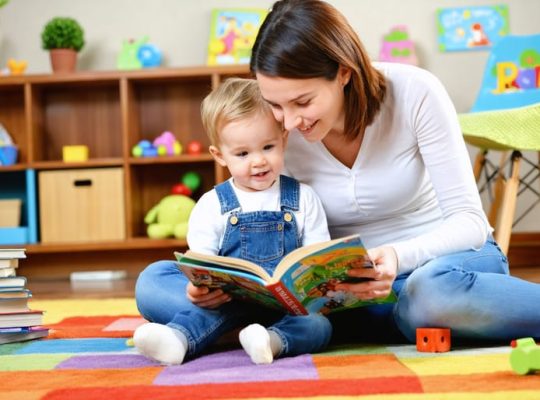Recognize the profound impact of family dynamics on a child’s mental health. From the earliest interactions to deeply ingrained patterns, the complex web of relationships, communication styles, and emotional atmospheres within a family can shape a child’s psychological development, self-esteem, and overall well-being. This article delves into the intricate connections between family dynamics and mental health, exploring how factors such as attachment styles, parenting approaches, and intergenerational trauma can either nurture or hinder a child’s emotional resilience. By understanding these critical influences, we can work towards fostering healthier family environments that promote mental wellness and break cycles of dysfunction.
The Building Blocks of Family Dynamics
Communication Styles
Effective communication within families is crucial for maintaining healthy relationships and supporting mental well-being. Healthy communication patterns involve active listening, expressing feelings and needs clearly, and showing empathy and respect for one another. Open and honest dialogue allows family members to share their thoughts and emotions, fostering a sense of trust and understanding. On the other hand, unhealthy communication patterns, such as criticism, blame, and silent treatment, can create a toxic environment that negatively impacts mental health. When family members resort to yelling, name-calling, or dismissing each other’s feelings, it can lead to feelings of worthlessness, anxiety, and depression. It’s essential for families to recognize and break these destructive patterns, replacing them with positive, constructive communication. By modeling healthy communication skills and creating a safe space for open discussions, parents can help their children develop the tools they need to express themselves effectively and build strong, supportive relationships throughout their lives.
Family Roles and Expectations
Family roles and expectations can significantly shape a child’s sense of self and emotional development. When children are assigned rigid roles within the family, such as the “responsible one” or the “trouble-maker,” they may feel pressured to conform to these expectations, limiting their ability to explore their own identities. Unrealistic or overly demanding expectations can lead to feelings of inadequacy, anxiety, and low self-esteem. On the other hand, when family roles are flexible and expectations are age-appropriate, children have the opportunity to develop a strong sense of self and build resilience. By fostering open communication, offering unconditional love and support, and allowing children to express their unique personalities, families can create an environment that nurtures positive emotional growth and mental well-being.
Boundaries and Emotional Climate
Boundaries and a supportive emotional environment are crucial for a child’s mental well-being. Clear, consistent boundaries provide a sense of security and help children understand what is expected of them. When parents set and enforce age-appropriate limits with love and respect, children feel safe and learn to regulate their emotions effectively. A warm, nurturing emotional climate fosters open communication, allowing children to express their feelings and concerns without fear of judgment. By creating a home atmosphere that is emotionally responsive, validating, and supportive, parents lay the foundation for their child’s healthy emotional development and resilience in the face of life’s challenges.
The Impact on Mental Health

Anxiety and Depression
Family dynamics can have a significant impact on a child’s mental health, particularly in the development of anxiety and depression. When children are exposed to high levels of conflict, criticism, or emotional neglect within the family, they may internalize these negative experiences, leading to feelings of low self-worth, insecurity, and helplessness. Inconsistent parenting styles, such as being overly permissive or excessively strict, can also contribute to a child’s anxiety by creating an unpredictable and unstable environment. Additionally, if parents struggle with their own mental health issues or substance abuse, children may feel overwhelmed, confused, and unsupported, increasing their risk of developing anxiety or depression.
On the other hand, families that foster open communication, emotional validation, and a sense of belonging can help protect children from these mental health challenges. By creating a safe and nurturing environment where children feel heard, valued, and supported, parents can help build resilience and emotional well-being. Encouraging healthy coping mechanisms, such as talking about feelings, engaging in physical activity, and practicing relaxation techniques, can further strengthen a child’s ability to manage stress and maintain good mental health.
Attachment Issues
Inconsistent or neglectful parenting can have a profound impact on a child’s emotional development, leading to attachment disorders. When a child’s basic needs for love, security, and nurturing are not met consistently, they may struggle to form healthy attachments with their caregivers and others. This can manifest as difficulty trusting others, fear of abandonment, or an inability to regulate emotions. Children with attachment issues may exhibit clingy or withdrawn behavior, aggression, or difficulty forming friendships. It’s crucial for parents to provide a stable, loving environment and seek professional help if they suspect their child is experiencing attachment problems. With early intervention and support, children can learn to build healthy relationships and develop a strong sense of self.
Self-Esteem and Identity Formation
Family dynamics play a crucial role in shaping a child’s self-esteem and identity. Children who grow up in supportive, nurturing environments are more likely to develop a positive sense of self. When parents and caregivers provide unconditional love, validation, and encouragement, children learn to value themselves and feel confident in their abilities. On the other hand, dysfunctional family dynamics, such as constant criticism, neglect, or favoritism, can erode a child’s self-worth and lead to feelings of inadequacy or self-doubt. Family interactions also influence how children perceive themselves in relation to others, shaping their social identities and roles within the family unit. By fostering open communication, mutual respect, and a strong sense of belonging, families can help children build a solid foundation for healthy self-esteem and a well-defined sense of identity that will serve them throughout their lives.
Fostering Healthy Family Dynamics

Open and Honest Communication
Open and honest communication is the foundation of healthy family dynamics and plays a crucial role in supporting children’s mental well-being. Encourage family members to express their thoughts, feelings, and concerns in a safe, non-judgmental environment. Active listening, empathy, and validation are key components of effective communication. Parents should model open communication by sharing their own emotions and experiences, while also being receptive to their children’s perspectives. Regularly engage in family discussions, both one-on-one and as a group, to foster trust and understanding. Establish clear boundaries and expectations for communication, such as setting aside dedicated time for family conversations and practicing respectful dialogue. Remember that communication styles may vary among family members, so it’s essential to adapt your approach accordingly. By prioritizing Nurturing Healthy Family Dynamics through open and honest communication, you can create a supportive environment that promotes emotional well-being and resilience in children.
Promoting Emotional Intelligence
Emotional intelligence plays a crucial role in fostering healthy family dynamics and promoting mental well-being in children. One effective technique is to model empathy and emotional awareness as a parent. Children learn by observing and mimicking their parents’ behavior, so it’s essential to demonstrate active listening, validate their feelings, and express your own emotions in a healthy manner.
Encourage open communication within the family, creating a safe space for everyone to share their thoughts and feelings without judgment. Regular family meetings or check-ins can provide opportunities for family members to express themselves and practice empathy.
Teach children to identify and label their emotions through age-appropriate activities, such as using emotion cards or discussing characters’ feelings in books or movies. Help them develop a rich emotional vocabulary, enabling them to better understand and communicate their experiences.
Practice promoting emotional intelligence through role-playing exercises, where family members take turns expressing and responding to different emotions. This helps children develop empathy and learn appropriate ways to react to others’ feelings.
Incorporate mindfulness and relaxation techniques into daily family life, such as deep breathing, guided imagery, or yoga. These practices can help both children and parents regulate their emotions, reduce stress, and cultivate a sense of inner peace.
By prioritizing emotional intelligence within the family, parents can create a nurturing environment that supports the mental health and well-being of all family members.
Seeking Professional Help
When family dynamics contribute to mental health challenges, it’s essential to seek professional support. Mental health professionals, such as therapists, counselors, or psychologists, can provide invaluable guidance and treatment for both individual family members and the family as a whole. They can help identify unhealthy patterns, teach effective communication strategies, and offer evidence-based therapies to address specific mental health concerns. Family therapy sessions can create a safe space for open dialogue, fostering understanding and healing within the family unit. Seeking professional help is a sign of strength and a crucial step towards building a healthier, more supportive family environment. Remember, there is no shame in reaching out for assistance – it demonstrates a commitment to your family’s well-being and can lead to lasting positive changes in your relationships and overall mental health.
Conclusion
In conclusion, family dynamics play a crucial role in shaping a child’s mental health and overall well-being. By fostering open communication, providing emotional support, setting clear boundaries, and modeling healthy coping strategies, families can create a nurturing environment that promotes resilience and positive mental health outcomes. It is essential to recognize that every family faces challenges, and seeking help when needed is a sign of strength, not weakness.
Remember, it is never too late to make positive changes within your family. Small steps, such as dedicating time for family bonding, practicing active listening, and expressing appreciation for one another, can have a profound impact on your child’s mental health. If you are concerned about your child’s well-being, do not hesitate to reach out to a mental health professional for guidance and support.
By prioritizing your family’s mental health and working together to create a loving, supportive home environment, you can help your child develop the emotional resilience and coping skills necessary to navigate life’s challenges. With patience, understanding, and a commitment to growth, families can overcome obstacles and thrive together, laying the foundation for a brighter, healthier future for all.







